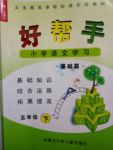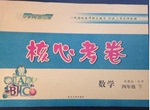题目内容
A new term has begun. Teachers are 1 about the fact that new students are not easy to deal with(对付). They like to bring telephones(手机) and MP3 players to school. What is 2 , some students even use telephones to do out-of-class matters in class, or sometimes just for fun. Some otherstudents listen to MP3 players when they are having a lesson that they are not interested in.
Are these new students really that 3 ? “Yes.” says Delaney Kirk, a professor at Drake University. 4 she says it’s not their fault(过错). 5 , the teachers should be blamed(责备). Mrs Kirk first began thinking about students’ manners six years ago. “I had my first class in which students were sleeping or talking to each other. It seemed that learning well had nothing to do with them.” she says. “At first, I got worried about this.” but then I said to myself, “You’re giving 6 , and you need to deal with this kind of situation (情况). These students need to know more about manners. It’s time to help them develop some good 7 . They shouldn’t waste time doing nothing when they are young. Sooner or later, they may regret(后悔) the time they have wasted.”
Mrs Kirk also 8 a list of suggestions(建议) to help teachers better manage (控制) their classes. The following are among her suggestions:
l On the first day of class, tell students how they will benefit(受益) by taking the class and the importance 9 listening carefully in class.
l Do not allow(允许) them to bring telephones or MP3 players to the class at all.
l Tell them how to use telephones or MP3 players 10 .
| 【小题1】 |
|
| 【小题2】 |
|
| 【小题3】 |
|
| 【小题4】 |
|
| 【小题5】 |
|
| 【小题6】 |
|
| 【小题7】 |
|
| 【小题8】 |
|
| 【小题9】 |
|
| 【小题10】 |
|
【小题1】B
【小题2】B
【小题3】A
【小题4】A
【小题5】D
【小题6】D
【小题7】C
【小题8】A
【小题9】B
【小题10】B
解析【小题1】be worried about 固定短语为…担心
【小题2】what’s wose 固定短语,更糟糕的是…
【小题3】此题考查形容词,根据句意应选rude,表示粗鲁的
【小题4】此题考查连词,表示转折,故用 but。
【小题5】此题重点考查单词instead的用法,表示相反。
【小题6】give lesson 表示正在上课
【小题7】good habits表示好习惯
【小题8】make a list 固定短语。
【小题9】此题考查介词on表示关于
【小题10】此题考查副词,意思是高诉学生怎样正确使用手机和MP3.

 小学学习好帮手系列答案
小学学习好帮手系列答案 小学同步三练核心密卷系列答案
小学同步三练核心密卷系列答案Many Chinese students think American students enjoy more freedom than them at school. In fact, American schools also have their rules. If students break(违背) the rules, they will get punishment(惩罚), too. On the first day of a new term, 128 students of Morton High School were sent back home for wearing the wrong clothes. There are altogether(总共)1,200 students in the school. Usually only 20 students break the school dress rule every day. So the headmaster(校长)Theresa Mayerik said it was the worst new term she had ever seen.
At Morton High School, students’ favorite clothes such as wide pants and low-necked shirts are not allowed( 允许). Some students think they have the right to choose what to wear, but the headmaster doesn’t think so.“ I’d be supportive if half the school was sent back home ,because 99% will get the message that our school is for education”
“Freedom” doesn’t mean “free of restrictions(限制性规定)”. That is to say, there is no total(完全的) freedom in the world, no matter in the US or in China.
【小题1】Many Chinese students think that American student_______.
| A.are very free at school |
| B.as clever as them |
| C.love their school a lot |
| D.have many rules at school |
| A.not finishing their homework |
| B.playing computer games |
| C.not wearing the right clothes |
| D.being late for school |
| A.decide when to go to school |
| B.choose what to wear to school |
| C.eat and drink in class |
| D.decide how to go to school |
| A.高兴的 | B.支持的 | C.害怕的 | D.反对的 |
| A.In America, if students break the school rules, they won’t get any punishment. |
| B.In Morton High School, there are usually 128 students breaking the school dress rules |
| C.The writer doesn’t think there is freedom in America |
| D.The writer doesn’t think there is total freedom in the world. |
 es
or new pens to their classmates when the new term started . Today, however ,
all have . If you still come back to
school only these things , you are falling
out-of-date(过时的) . Students in big cities like to bring
the latest high-tech things to school, and feel happy and to
show off these things to . Mobile phones,
MP3 players , CD players , electronic dictionaries , the list is endless .
es
or new pens to their classmates when the new term started . Today, however ,
all have . If you still come back to
school only these things , you are falling
out-of-date(过时的) . Students in big cities like to bring
the latest high-tech things to school, and feel happy and to
show off these things to . Mobile phones,
MP3 players , CD players , electronic dictionaries , the list is endless .